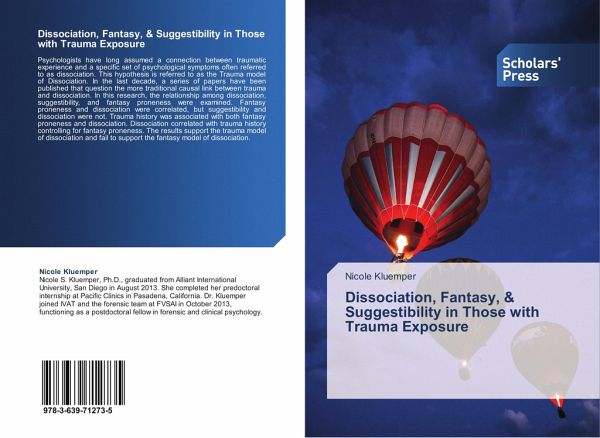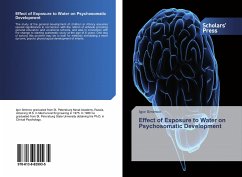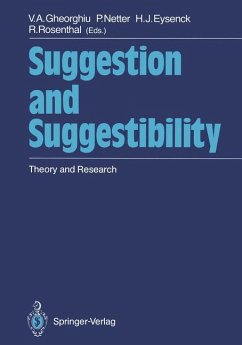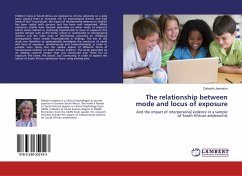
Dissociation, Fantasy, & Suggestibility in Those with Trauma Exposure
Versandkostenfrei!
Versandfertig in 6-10 Tagen
25,99 €
inkl. MwSt.

PAYBACK Punkte
13 °P sammeln!
Psychologists have long assumed a connection between traumatic experience and a specific set of psychological symptoms often referred to as dissociation. This hypothesis is referred to as the Trauma model of Dissociation. In the last decade, a series of papers have been published that question the more traditional causal link between trauma and dissociation. In this research, the relationship among dissociation, suggestibility, and fantasy proneness were examined. Fantasy proneness and dissociation were correlated, but suggestibility and dissociation were not. Trauma history was associated wit...
Psychologists have long assumed a connection between traumatic experience and a specific set of psychological symptoms often referred to as dissociation. This hypothesis is referred to as the Trauma model of Dissociation. In the last decade, a series of papers have been published that question the more traditional causal link between trauma and dissociation. In this research, the relationship among dissociation, suggestibility, and fantasy proneness were examined. Fantasy proneness and dissociation were correlated, but suggestibility and dissociation were not. Trauma history was associated with both fantasy proneness and dissociation. Dissociation correlated with trauma history controlling for fantasy proneness. The results support the trauma model of dissociation and fail to support the fantasy model of dissociation.












